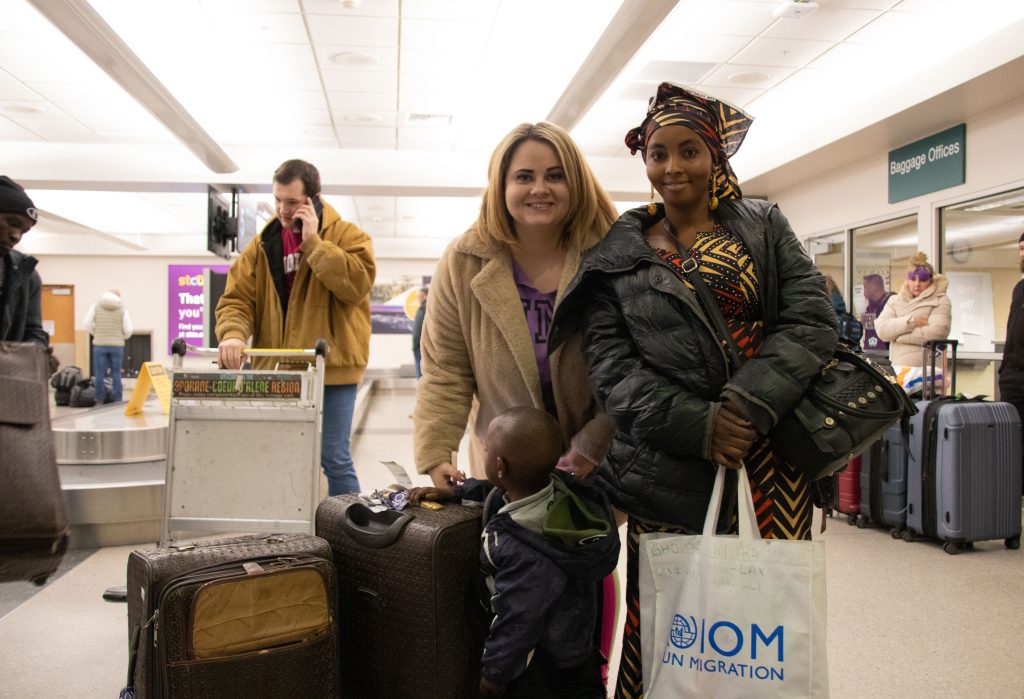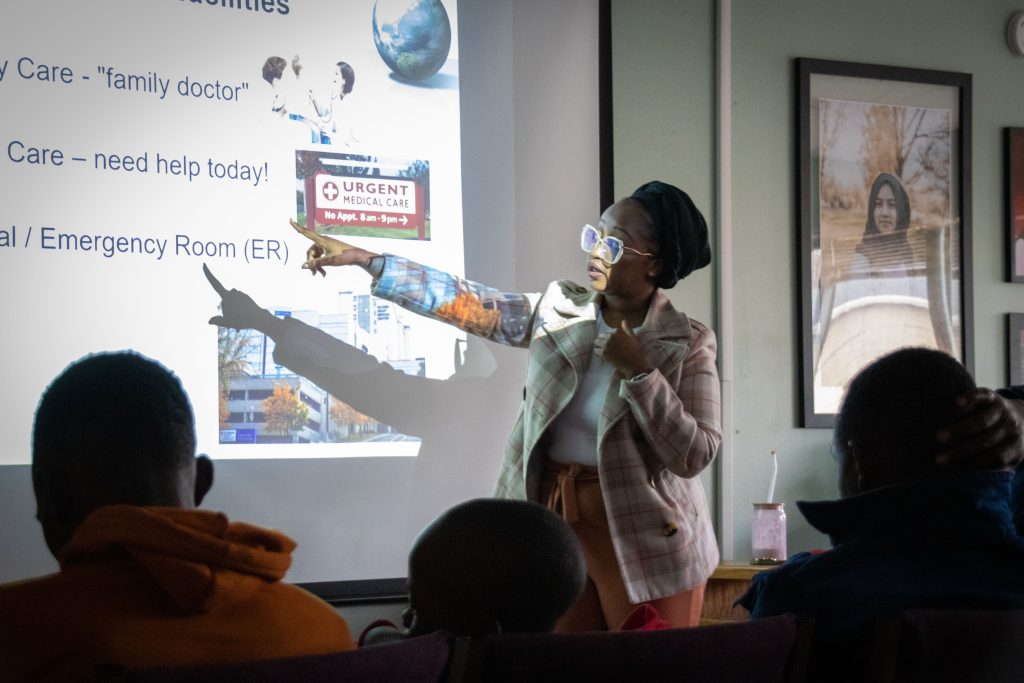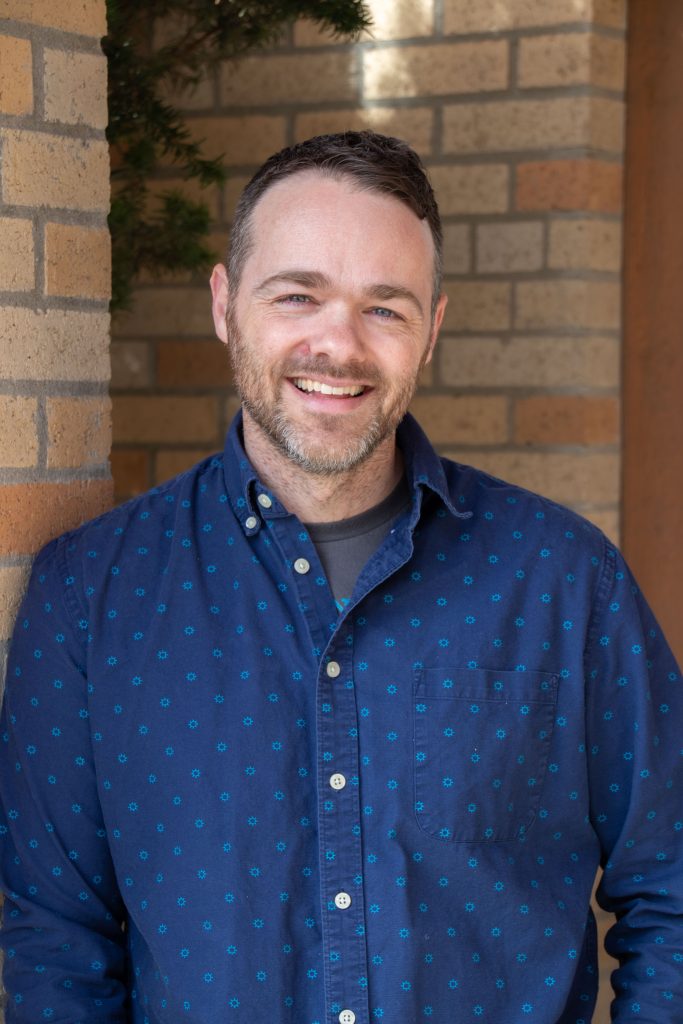An Honest Look at Refugee Resettlement in Spokane
We sat down to have a frank conversation with World Relief Spokane Resettlement Director Jordan Bemis about what’s working and what’s not in the world of refugee resettlement in Spokane. We wanted to ask Jordan some tough questions because here’s the truth: Refugee resettlement is BIG and complex, and every case is different. Some new arrivals need a lot of help. Some need less. Some people arrive with moderate to good English skills; some do not. Some people have transferable skills and are ready to start work almost immediately. Some have been in refugee camps for years. What motivates one person might not motivate another. One family may have two children; another may have 10. One person may come from a country with a way of life very similar to that of the United States; another may have lived without indoor plumbing.
Whatever the situation in their country of origin, the people being served by World Relief Spokane have experienced the trauma of displacement; they have been invited by the U.S. government (in other words, they are here legally); and they are seeking to rebuild their lives in a safe place. Helping them to flourish here is a community endeavor in which we can all take part. In fact, and you’ll hear us say this multiple times, World Relief cannot be successful in this work without you.

Question: What’s working really well right now?
Answer: Community partnerships. There is a lot of support for refugee resettlement in Spokane. World Relief Spokane has resettled nearly 12,000 people over the course of 31 years, and strong support systems have been created in that time. We’re still growing. A few years ago, we only had a couple hundred refugees arriving; this year, we will have more than 700. That rapid growth is stretching everyone, but we have some great partnerships.
Spokane Public Schools has a great system for getting immigrant children tested and into the right classes. Plus, the Newcomers Center is a great program for kids with no English. We are beginning to build a relationship with the schools in Spokane Valley, as well.
The clinics do a great job of getting new cases in to see the doctor for their initial health screenings. Just to name a few, we have great working relationships with CHAS, Unify and Community Health Plan of Washington.
Spokane Community Colleges have great ESL programs for adults. They also provide a pathway for them to earn their GED and go to college in the future if they want. They also provide other support services like bus passes and online classes.
Finally, while housing has been a tremendous challenge this year, I think focusing on it has yielded good results. If we can stabilize housing and get that figured out, then clients have the capacity to think about searching for a job and learning ESL. If they are in an unstable place housing-wise, then that’s all they can think about. We have really put a lot of energy into building relationships with landlords, finding affordable housing and communicating realistic expectations to clients.
It’s important to understand that the majority of people who go into this work are compassionate, caring people. They want to help.
Jordan Bemis, Resettlement Director
Q: What is possible to get done in the 90 days after a client arrives? Or, said another way, what is required and covered by government contract?
The federal government has a strict list of resettlement requirements, and honestly, there isn’t much time left for the resettlement specialist to do more, especially during seasons when new cases are coming every week. The initial resettlement specialist are more like disaster aid workers than case managers or social workers. The goal is to meet basic needs, get people connected to resources, and then move on to the next family.
Within 90 days, World Relief resettlement specialists
- Meet new arrivals at the airport and provide transportation to initial housing.
- Provide necessary seasonal clothing. The clothing does not have to be new, but it must be clean and in good condition.
- Arrange safe, decent, sanitary housing.
- Provide each adult in the family with a small amount of money for personal spending.
- Provide basic furniture and household items. Again, the items do not need to be new, but they must be clean and in good condition. (When people donate quality used items, this allows us to use their initial resettlement funds toward housing.)
- Provide food or food allowance according to family size until food stamps are received or the family can provide its own food.
- Visit the new arrivals in their homes two times within the first 30 days.
- Help with application for cash and medical assistance.
- Help with application for a Social Security card.
- Help with enrollment into an English language class if appropriate.
- Help with enrollment in employment services if appropriate.
- Help with obtaining health screenings and ay health services needed.
- Help with enrolling and registering children in school.
- Provide orientation to the community and life in the United States.
- Provide transportation and interpretation, as needed, for all required services.

Q. What is not possible to get done in the first 90 days? (What services are not included in the government contract?)
It’s important to understand that the majority of people who go into this work are compassionate, caring people. They want to help. They want to do everything possible to ensure that our new arrivals succeed. But there are very real limits – limits to time, to energy and to funding.
The following services are not included in the requirements for the first 90 days:
- Opening bank accounts
- Obtaining WA state ID
- Doing extensive community and cultural orientation. (We cover the basics, and generally, we cover them once. We show someone how to ride the bus and then expect them to be able to take it from there.)
- Setting up childcare.
- Changing housing arrangements. We place newcomers in their first apartment/house, but many times, they want to choose their own place (right away or later on). We are not able to show them multiple options, and we are not able to train them on how to look for housing and apply for places.
Q: Where do you see people succeeding?
Having been here for 12 years now, it’s wonderful to see where people are three to five years out. You see them get their permanent resident status and then their citizenship. You see the pride in their eyes. You see it when a family who struggled to find their first job when they arrived is buying a home five years later. One of the predominant hopes I hear from newly arrived clients is that their kids will be able to go to college; so when you see that – former refugees’ kids graduating from college and getting great jobs, getting married and contributing to the community – that is fulfilling. That is success.
Volunteers can be friends and have tea and provide the emotional support that resettlement specialists often cannot, simply due to time constraints.
Jordan Bemis, Resettlement Director
Q: Where do you see the system failing?
Refugee Resettlement is systematically underfunded. There has not been a significant increase in funding for more than ten years. At the same time, rent prices have increased almost ten percent every year. A lack of funding translates into insufficient staffing and high case loads which, in turn, leads to high turnover.
As with most government-funded services, there is also high admin and reporting requirements which take attention away from actual client needs. Unnecessary admin is not only burdensome, it detracts from the actual work of teaching clients and helping them to navigate their new surroundings.
Q. What are the biggest challenges right now?
Capacity. It’s non-stop. The number of people coming every month is higher than ever before.
Client expectations can be high; so, communicating what we can and cannot do for them and setting boundaries is paramount but also difficult. Understandably, it is difficult for a new arrival to see the big picture.
Q. What causes burnout among your resettlement specialists?
Clients’ failure to understand that they cannot have everything they want right away. My team may be going above and beyond to help a family and still meet with disappoint and disapproval from the family because their expectations are not being met.
Q. How can the community make a difference? How can they help stretch the dollars or fill in gaps where people sometimes get stuck?
Volunteers are key. They can help with late-night arrivals. They can provide transportation to DSHS and medical appointments. They can set up apartments, provide bus training and assist in the office. Volunteers can be friends and have tea and provide the emotional support that resettlement specialists often cannot, simply due to time constraints.

Donations of cleaning supplies, hygiene items and household furnishings really help us stretch the resettlement dollars and put more of those initial funds toward housing.
Finally, we would love to be able to provide every family with an additional month of rent. On average, it is taking our clients five and a half to six months to get their first job. Unfortunately, their resettlement funds usually run out before that happens. One more month of rent will make a huge difference for our families, but we cannot do that out of the limited government funds. That requires financial donations from the community.
We invite you to make an impact on newly arrived refugees and other immigrants. Give of your time, your talent and your treasure.

